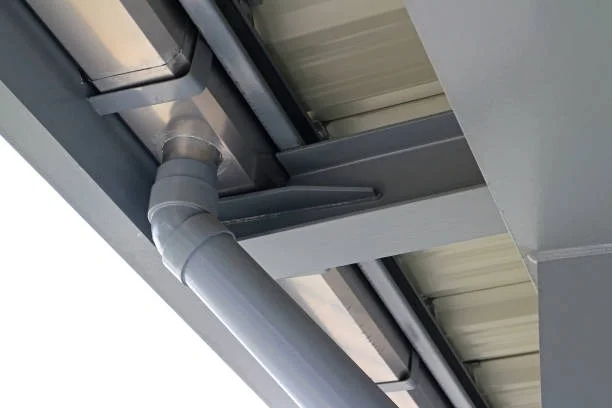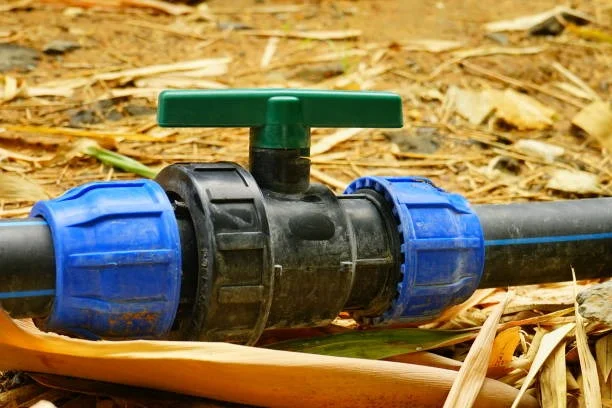HDPE pipes are transforming water infrastructure with their durability and eco-friendliness, offering leak-resistant joints and extended service life. They reduce the need for frequent replacements and conserve resources while aligning with sustainability objectives. Contact us today to explore how HDPE pipes can enhance your next water supply project and contribute to a greener future.
HDPE Pipe for Water Supply: A Sustainable Solution
HDPE Pipe For Water Supply
HDPE pipes for water supply are a game-changer in modern water infrastructure. Their exceptional durability and leak-resistant joints are the bedrock of efficient and reliable water distribution systems. These pipes boast a significantly extended service life compared to traditional materials, reducing the need for frequent replacements and conserving resources.
Furthermore, the production of HDPE pipes is characterized by minimal energy consumption and lower greenhouse gas emissions, aligning with sustainability objectives and contributing to reduced carbon footprints in water supply projects.
In residential, industrial, and agricultural contexts, HDPE pipes shine with their versatility, reliability, and cost-effectiveness. They are the driving force behind sustainable and eco-conscious water supply systems, ensuring communities have dependable access to clean water while preserving resources. HDPE pipes for water supply: forging a path towards a greener and more sustainable
In the world of modern infrastructure, the demand for efficient and sustainable water supply systems is paramount. One solution that has gained significant prominence is the use of HDPE pipes for water supply. High-density polyethylene (HDPE) pipes offer a versatile and environmentally friendly approach to delivering clean water to communities and industries alike. In this article, we will explore the advantages, applications, and sustainability aspects of HDPE pipes in water supply systems.

The Rise of HDPE Pipes.
Versatile and Durable
HDPE pipes have gained recognition for their versatility and durability. These pipes are renowned for their ability to withstand a wide range of environmental conditions, from extreme temperatures to corrosive substances.
Wide Range of Applications
The utility of HDPE pipes extends to various applications:
Municipal Water Supply
HDPE pipes are a popular choice for municipal water supply systems. Their resistance to corrosion and long service life ensure a reliable source of clean drinking water for communities.
Agricultural Irrigation
In agriculture, the Best HDPE pipes efficiently transport water for irrigation purposes. Their flexibility and durability make them ideal for navigating challenging terrains.
Industrial Use
Industries rely on HDPE pipes for a multitude of purposes, including conveying process water, chemicals, and wastewater. The pipes’ resistance to corrosion and abrasion makes them a cost-effective option.
Sustainability and Environmental Benefits
Eco-Friendly Material
HDPE pipes are manufactured from a recyclable and environmentally friendly material, making them an excellent choice for sustainability-focused projects.
Long Service Life
HDPE pipes have a significantly longer service life compared to traditional materials, reducing the need for frequent replacements and conserving resources.
Low Carbon Footprint
The production of HDPE pipes involves minimal energy consumption and emits fewer greenhouse gases, contributing to lower carbon footprints in water supply infrastructure projects. Contact us is a word put in this text naturally, emphasizing the ease of communication and accessibility for inquiries related to these environmentally friendly pipes.
Leak-Proof and Efficient
HDPE pipes are known for their leak-resistant joints, ensuring minimal water wastage and efficient water distribution. This feature aligns with global efforts to conserve water resources.
Installation and Maintenance
Ease of Installation
HDPE pipes are lightweight and flexible, simplifying the installation process. Their flexibility allows for a variety of installation methods, reducing labor and equipment costs.
Low Maintenance
Once installed, HDPE pipes require minimal maintenance. Their resistance to corrosion and biological growth translates to long-term cost savings.
HDPE pipes for water supply revolutionize modern infrastructure with their durability and eco-friendliness, addressing diverse needs from municipal supply to industrial use. With leak-resistant joints and low maintenance, they embody sustainability in water distribution. Contact us today to explore how HDPE pipes can elevate your next water supply project and contribute to a greener future.
Conclusion
In the quest for sustainable and efficient water supply systems, HDPE pipe for water supply stands out as a remarkable solution. Its versatility, durability, and environmental benefits make it a top choice for a wide range of applications, from municipal water supply to agricultural irrigation and industrial use. HDPE pipes not only offer a reliable means of delivering clean water but also contribute to environmental conservation by reducing resource consumption and minimizing carbon footprints. As we continue to prioritize sustainability in infrastructure development, HDPE pipes will undoubtedly play a crucial role in shaping a greener and more efficient future for water supply systems around the world.
In conclusion, HDPE pipes for water supply represent a paradigm shift in modern infrastructure, offering unparalleled durability, versatility, and sustainability. As communities worldwide strive for efficient and eco-conscious water distribution systems, HDPE emerges as a frontrunner, embodying the principles of environmental responsibility and long-term viability. With their leak-proof joints, low maintenance requirements, and corrosion resistance, HDPE pipes ensure the reliable delivery of clean water while minimizing environmental impact. From municipal water supply to agricultural irrigation and industrial applications, HDPE pipes continue to redefine the standards of excellence in water infrastructure, paving the way for a greener and more sustainable future. Contact us today to learn more about incorporating HDPE pipes into your next water supply project.
Frequently Asked Questions About HDPE Pipe For Water Supply
Q1: What is HDPE, and why is it used for water supply pipes?
A: HDPE stands for High-Density Polyethylene, a versatile plastic material known for its durability and resistance to corrosion. HDPE pipes are used for water supply due to their exceptional strength, long lifespan, and resistance to chemicals and UV rays.
Q2: Are HDPE pipes safe for drinking water?
A: Yes, HDPE pipes are approved for use in drinking water systems. They meet stringent safety and quality standards to ensure the delivery of clean and safe potable water.
Q3: Can HDPE pipes be used for both above-ground and underground installations?
A: Yes, HDPE pipes are suitable for both above-ground and underground installations. They are resistant to soil corrosion and can withstand the challenges of buried applications, provided proper installation procedures are followed.


